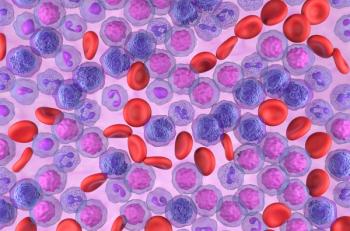
Phase 1b data on SL-172154 in acute myeloid leukemia will be presented at the 2024 European Hematology Association Congress.

Your AI-Trained Oncology Knowledge Connection!


Phase 1b data on SL-172154 in acute myeloid leukemia will be presented at the 2024 European Hematology Association Congress.

Neil M. Iyengar, MD, focuses on the use of artificial intelligence in the oncology space.
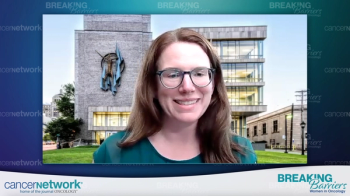
Health economists discuss their interests in the outcomes observed from the Affordable Care Act and its impact on specific populations.

Dietary interventions or other medications may help mitigate diarrhea in patients who undergo therapy for chronic myeloid leukemia.

Data from the phase 3 ALINA trial support the approval of alectinib for patients with ALK-positive non–small cell lung cancer in the European Union.

The FDA is expected to decide on approving osimertinib for EGFR-mutated non–small cell lung cancer in the fourth quarter of 2024.

Cathy Bradley, PhD, and Lindsay M. Sabik, PhD, spoke about moving the needle forward in the public health space through research and persistence.

Oncology pharmacist Jagoda Misniakiewicz, PharmD, discusses the potential efficacy and safety profile of fruquintinib in patients with metastatic CRC.


Additionally, the 48-month overall survival rate was higher with nivolumab/cabozantinib vs sunitinib in the phase 3 CheckMate 9ER trial.

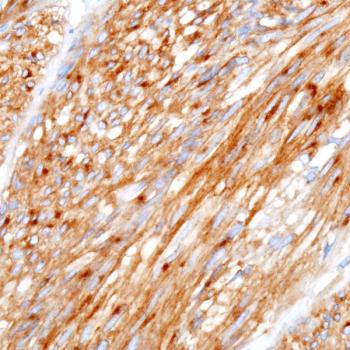
Olverembatinib has shown promising clinical efficacy in SDH-deficient gastrointestinal stromal tumors, says Haibo Qiu, MD.

Considering notable adverse effects associated with treatment may be critical when selecting therapy options for those with CML.

Data from the EPCORE NHL-1 trial support the safety and feasibility of epcoritamab for patients with relapsed/refractory follicular lymphoma.

Data show responses lasting for more than 6 months among patients with melanoma who responded to treatment with RP1 plus nivolumab.

The field of breast oncology is constantly evolving to include trial diversity and multidisciplinary care.

The FDA has approved imetelstat (Rytelo) for the treatment of adult patients with low- to intermediate-1 risk myelodysplastic syndromes with transfusion-dependent anemia requiring at least 4 red blood cell units over 8 weeks who have not responded to, or have lost response to, or are ineligible for erythropoiesis-stimulating agents.

Tiffany A. Traina, MD, and Sherry Shen, MD, discussed barriers they have had to overcome throughout their oncology careers.

Toxicity in this phase 3 trial was comparable with prior reports of chemotherapy among patients with relapsed/refractory acute myeloid leukemia.

Phase 3 data also show an improvement in deterioration-free survival with TTFields and best supportive care in those with NSCLC and brain metastases.

Patients with breast cancer or those who are survivors can be candidates for genetic testing, according to Brittany L. Bychkovsky, MD, MSc.
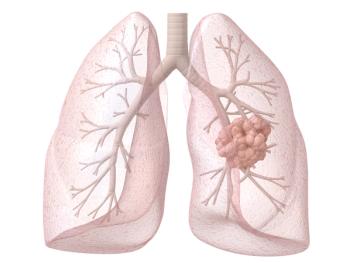
Long-term data from the CheckMate 9LA trial support nivolumab/ipilimumab plus chemotherapy as frontline treatment for metastatic NSCLC.
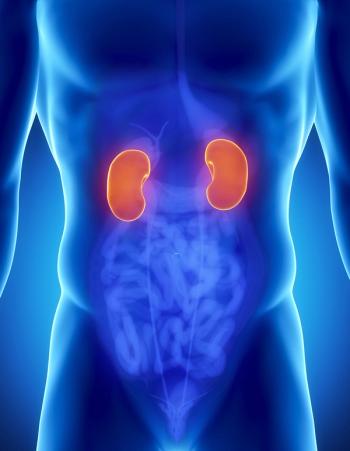
“Our analysis showed that the time to progression was later with the use of lenvatinib and pembrolizumab compared with sunitinib,” said Viktor Grünwald, MD, PhD.

Phase 2 data may support petosemtamab as a best-in-class treatment for frontline HNSCC, according to Jérôme Fayette, MD.

Data support prophylactic treatment with tocilizumab as an option to mitigate the risk of CRS for outpatient dosing of teclistamab.

Most treatment-related adverse effects reported with CAN-2409 plus valacyclovir in a phase 2 trial were grade 1 or 2.

Additionally, PFS data in the CLEAR trial confirm the benefit of the lenvatinib combination in patients with clear cell RCC regardless of PD-L1 IHC.

Thrombocytopenia and interstitial lung disease following treatment with JNJ-6420 appeared to be manageable with dose schedule modifications.
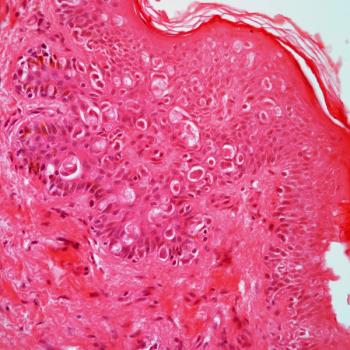
Pembrolizumab plus platinum-containing therapy may be a new treatment option for advanced penile cancer based on data from the HERCULES trial.

Data from the PERSEUS trial also show that responses deepened over time in both arms among patients with transplant-eligible multiple myeloma.